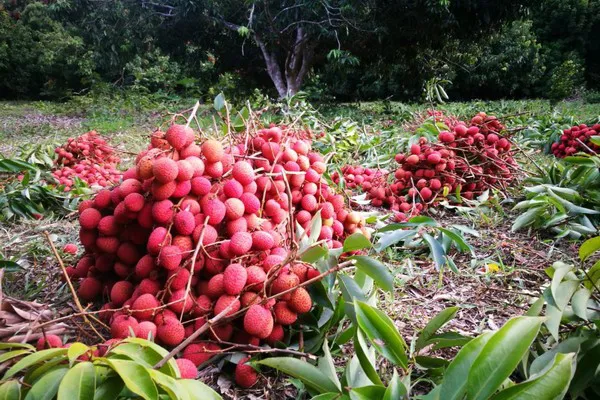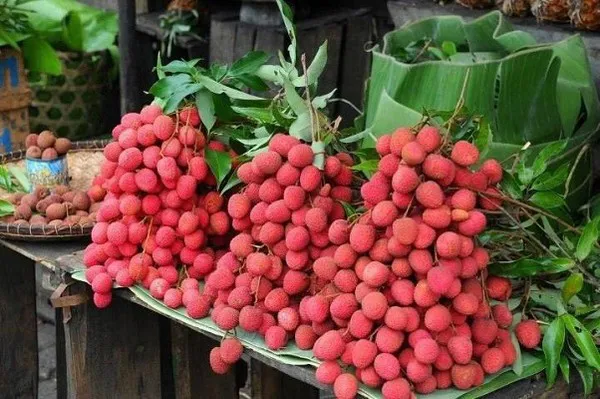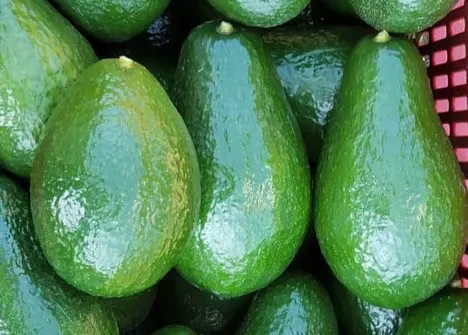In week 49, the first Madegassian lychees of this season were shipped out. "We are observing a normal start to the season, similar to other years. On one hand, volumes are within the normal limits. However, due to inflation and continued high freight rates, prices are above last year's level, although freight costs have already passed their peak," says Oliver Wanner, buyer and seller at Giovanelli Fruchtimport.

The lychee campaign also started this year, with South African air-freighted goods in week 46 to 49. "The supply situation was quite good, but demand was nevertheless somewhat limited, as higher-priced products are currently somewhat less in the focus of the consumer. This then meant that certain lots could not be marketed."

Madegassian goods, brought in by boat, are about 40-50 percent cheaper than air-freighted goods from South Africa.
Madegassian goods, brought in by boat, are usually marketed until early January, after which the trade moves on to the second half of the South African season. The lychee campaign traditionally ends with produce from Mexico. Wanner: "The Madegassian season is relatively short, as produce is harvested within 10 days. Lychees are also a seasonal product par excellence; they are only marketed between November and February. Until a few years ago, we were able to sell lychees well after the Christmas holidays, but those days are gone. In general, the market share of lychees is also declining a bit, not just in Switzerland, but throughout Europe." Oliver Wanner (l) and Christoph Kilp at this year's Berry Congress.
Oliver Wanner (l) and Christoph Kilp at this year's Berry Congress.
Decline in quality of tropical avocados
At the same time, the marketing of tropical avocados of the Semil variety is in full swing, Wanner continues. The fruit originates in the Dominican Republic and is typically traded from October into February. "Unfortunately, we are struggling with quality losses this year, as the inner fruit is sometimes rapidly turning black during shipping. Also, food retail demand is slowing down a bit this year. Nevertheless, the market share of tropical avocados in Switzerland is relatively large and stable, this in contrast to other European countries where the fruit continues to have a complementary character." In addition to the Semil, the Carla variety traded there as well.

Tropical avocados of the Semil variety.
In addition to the Dominican Republic, tropical avocados are also being cultivated in other countries, such as Brazil, Colombia, Florida and Spain. "So far, however, only the produce from the Dominican Republic is suitable for export to Europe," Wanner concludes.
For more information:
Oliver Wanner
Giovanelli Fruchtimport AG
Schaffhauserstrasse 200
CH-8500 Frauenfeld
P +41 52 728 09 09
info@giovanelli.ch
www.giovanelli.ch
